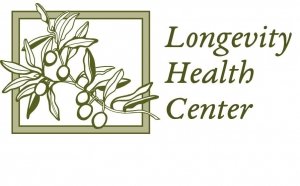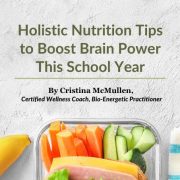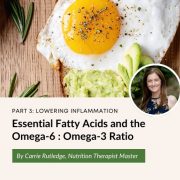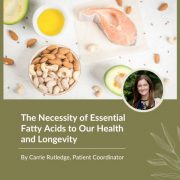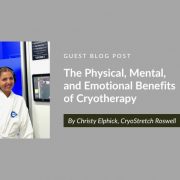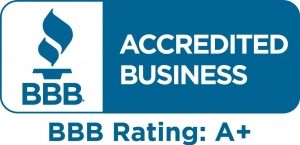The Importance of Nutrition in Healing Eczema Part Four: Supporting Optimal Methylation
By Carrie Rutledge, Nutrition Therapist Master
The MTHFR Gene and Health Outcomes
Great genes do not necessarily mean someone will live a longer, healthier, life and they are not a determinant for someone’s long-term health. In fact, foods, herbs, and spices have a powerful effect on whether a gene is expressed or repressed. An example of this is EGCG from green tea or genistein from quality soy. Both promote the repression of pro-inflammatory genes. Foods that can stimulate gene expression are sulforaphane from broccoli and curcumin from turmeric. Both can activate genes that are involved in cellular repair. Furthermore, if you look to Italy and Spain who are also carriers of similar genes, they do not manifest the same symptoms that we do in America due to a cleaner diet, that is pesticide free, not genetically modified, and less processed.
Methylation is simply taking a methyl group (1 carbon and 3 hydrogens or CH3) and transferring this group from one molecule to another. Methylation is important for turning processes on and off in the body: methylation turns a process on, and demethylation or the removing of the methyl group, turns the process off. The methylation cycle is involved in over 200 different reactions in the body such as DNA production, liver detoxification, immune function, and hormone production. Any disruption in the methylation cycle can have drastic effects on the body’s ability to function optimally.
When someone has a genetic SNP or “snip” then it will be more difficult for the methylation process to happen effectively. The MTHFR SNP seems to be increasing and has been associated with elevated homocysteine (associated with heart disease), decreased ability to detoxify external and internal assaults, abnormalities in DNA repair (associated with Cancer), neurobehavior issues, impaired expression and/or repression of essential genes, elevated risk for autism, and increased risk for miscarriage. Everyone has 2 copies of the MTHFR gene; however, there could be several genetic SNPs and in less than 1% of the population the MTHFR enzyme is completely impaired.
When DNA is methylated then certain genes will be suppressed and others will become activated and generally these genes help us to enhance our quality of life. When our methylation cycle becomes inhibited due to a genetic SNP, then disease causing genes can “wake up” causing us more burden.
The body’s ability to methylate requires several nutrients including amino acid methionine, choline, and B vitamins folate (B9), B12, and B3. Each nutrient must be in balance and available to ensure methylation. Folate is the nutrient necessary for beginning the methylation cycle. There is a difference in chemical structure between folate acquired from whole foods and folic acid which is synthetic and acquired from fortification or supplementation. Furthermore, folate from food can be easily destroyed from cooking, chopping, and juicing. The difference between synthetic folic acid and folate from foods is the way in which the body can use them efficiently. Studies show that our gut bacteria are also capable of synthesizing folate. This synthesis of folate in the gut is dependent on a healthy microbiome. For this reason, folate from food may not be as necessary as we once perceived.
Intake of folic acid enriched foods or prenatal vitamins needs activation from an enzyme called DHFR which is very slow in humans. In fact, research is now showing that high doses of folic acid supplementation or through processed foods impairs this enzyme and leads to high levels of un-metabolized folic acid in the blood. Furthermore, synthetic folic acid has been shown to inhibit the MTHFR enzyme and may bring about the same methylation insufficiency as someone who carries a genetic SNP.
Beginning in 1998, the United States began to add synthetic folic acid to all refined grains, cereals and processed foods which has been shown to bind to folate receptors on the surface of our cells. This prevents the active form of methyl folate to enter our cells. High doses of folic acid can completely gum up the entire methylation cycle and prevent us from absorbing natural folate. Testing serum folate levels in people with MTHFR usually show up with high levels of folate and homocysteine which indicates unmetabolized, synthetic folic acid binding to folate receptors and the body’s inability to utilize it.
Current research shows synthetic folic acid impairs the enzyme DHFR and natural folate absorption. As research continues to grow, we are finding that 98% of children with autism spectrum disorder (ASD) have an MTHFR SNP and mothers taking high doses of folic acid in pregnancy have higher rates of birthing children with ASD, childhood cancer, asthma, child allergic diseases and eczema. Likewise, conventional baby foods, formulas, and breast milk (if the mother supplements or eats fortified foods) is causing a burden on the infant after birth.
Supporting Optimal Methylation Through Diet
Although I do give my daughter a multivitamin with methyl-folate, I think it is important to understand that adding methyl-folate in the form of supplementation can worsen a person’s condition if they are over-methylated and/or deficient in B12, B2, B6, zinc, choline, and Magnesium. Methylation is used to detoxify the body and once the body is given increased methyl donors the body may begin releasing toxins faster than can be eliminated, which can exacerbate symptoms. Furthermore, methylation requires several vitamins and minerals in a delicate balance, so if supplementing, it is important to work up from low doses of methyl-folate while incorporating other nutrients.
It is important to understand when choosing healing foods to ensure proper methylation, you want to refrain from eating foods that will increase the toxin and inflammatory load. Remember, in other countries such as Europe, even though they may be carriers of the same genetic SNPs, many are not manifesting the same chronic disease symptoms (allergies, eczema, heart disease, ADHD, ASD, depression, cancer and PCOS) due to a cleaner diet. While it is important to include several nutrients in the diet, it is also important to avoid foods from the Standard American Diet (SAD diet). This includes: gluten containing grains, sugar, soy, corn, farm-raised seafood, soda, and conventionally raised meats, dairy, and eggs.
If we look at how the methylation pathways work, we see individual nutrients that are required for the process to run smoothly and if any of those nutrients are unavailable, we will see problems with the pathway and chemical reactions in the body. Personal nutrition to support methylation has been studied and shown to be effective in reducing biological age, improving brain health, and reducing risk of many chronic diseases when implemented.
Nutrients Needed to Support Methylation
- Folate-B9 (required to start the methylation cycle) folate is found in numerous foods including lentils, black beans, peas, chickpeas, asparagus, eggs, raw spinach, arugula, broccoli, beets, citrus fruits, and liver. *Note: Although liver is a superfood, it is high in vitamin A and iron which can be toxic in large amounts. Liver should be consumed no more than once per week.
- B12 (paramount to initiating the methylation cycle and necessary for generating SAMe (the main methyl donor for the body)) B12 is found in oysters, animal liver and kidneys, clams, sardines, beef, salmon, dairy products, eggs, and nutritional yeast. Nutritional yeast is the only vegan option for B12; therefore, vegans should supplement with B12 in the form of methyl-cobalamin)
- Riboflavin-B2 (the precursor to coenzymes that are responsible for energy production of the cell) Sources for B2 are liver, soybeans, shiitake mushrooms, eggs, fish roe, Greek yogurt, mussels, almonds, pork, lamb, and feta cheese
- Zinc (required for an enzyme that activates folate) the best zinc sources come from oysters, red meat, chicken, eggs, lentils (contain phytates which inhibit absorption), hemp seeds, dark chocolate, and cheese
- Choline (a methyl donor used for the conversion of homocysteine) even though the body can make choline, it is not enough to fulfill the biochemical needs of the body. Choline can be found in eggs, liver or organ meats, fish roe, fish, shiitake mushrooms, soybeans, wheat germ and lower amounts in chicken, turkey, and cruciferous vegetables
- Magnesium (required to produce SAMe) magnesium can be difficult to get though foods due to the depletion of mineral rich soil. Foods that contain magnesium are nuts and seeds, black beans, soybeans, dairy products, swiss chard, collard greens, spinach, avocadoes, chocolate, peas, and potatoes, however, supplementation may be necessary.
- Betaine (helps to convert homocysteine to methionine) betaine rich foods are beets, spinach, turkey, beef, veal, sweet potato, bulgur, and quinoa
- Fermented foods (required for producing a healthy microbiota which in turn can produce active folate in the digestive tract) fermented foods to include are kimchi, coconut kefir, unsweetened Greek yogurt, pickled vegetables, and probiotic supplements
Incorporating a whole foods diet focused on healthy methylation can greatly reduce inflammation and express positive effects on the body. The skin is a direct reflection of what is happening in the liver. When the liver becomes overburdened due to excess toxins coming in and ineffective methylation, it is common to see skin inflammation such as psoriasis or eczema. Although further research needs to be completed, it is important to understand that when we give the body nutrient dense foods that support methylation, are abundant in B vitamins, zinc, and choline, the liver will begin to detoxify effectively, and the skin will start to heal.
If you would like to learn more about healing your body through nutrition and lifestyle, please contact me at carrie.rutledge@longevityhealthcenter.com and set up a consultation to see how we can tailor a plan for you.
